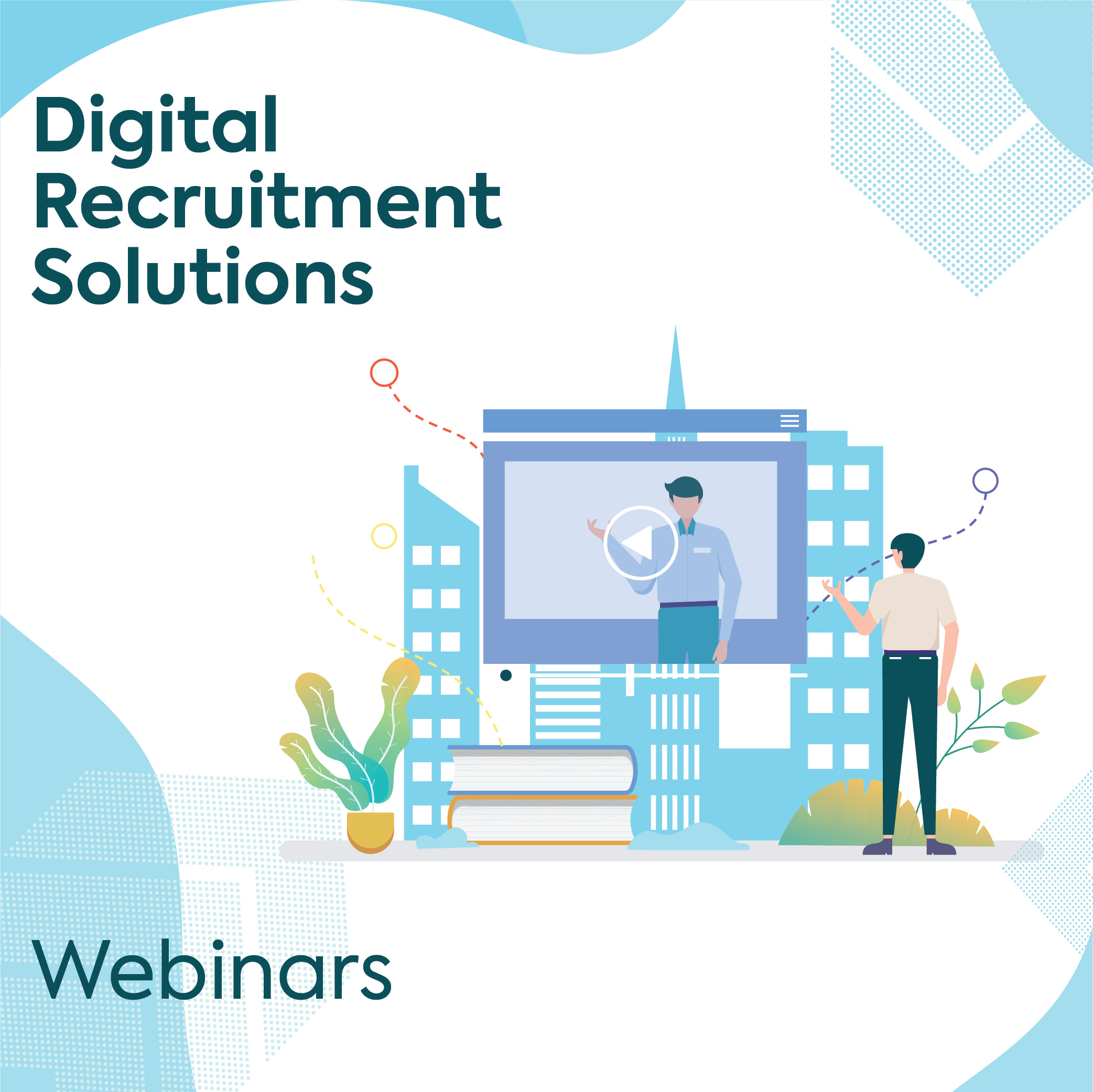
06 Mar Digital Recruitment Solutions III – Webinar
The past decade saw a hike in technological advancements that have deeply affected the education industry. From learning patterns to teaching practices, this transition is evident all around the world. Consider this, the E-learning industry is believed to expand up to $325 billion by 2025, justifying the need of new alternatives to keep up with the world trends.
Seminars have always been a great way for universities to reach out to prospective students. With the digital age, we were introduced to the idea of conducting remote seminars, or online seminars, also known as Webinars!
41% of marketers have been a part of a webinar, be it through hosting or participating. 83% of these marketers found them to be a highly effective marketing strategy. Webinars allow higher education brands to get in touch with prospective students and parents without having to spend the money to travel to their target markets. The sheer ease of information dissemination, if leveraged well can be a great promotional and lead generation tool.
The average length of a Webinar in the education industry is one hour. The big challenge with webinars, however, is identifying the type of information your target market’s requires. Let’s jump into the types of webinars around that you could use for your university, college’s or education institute’s promotion.
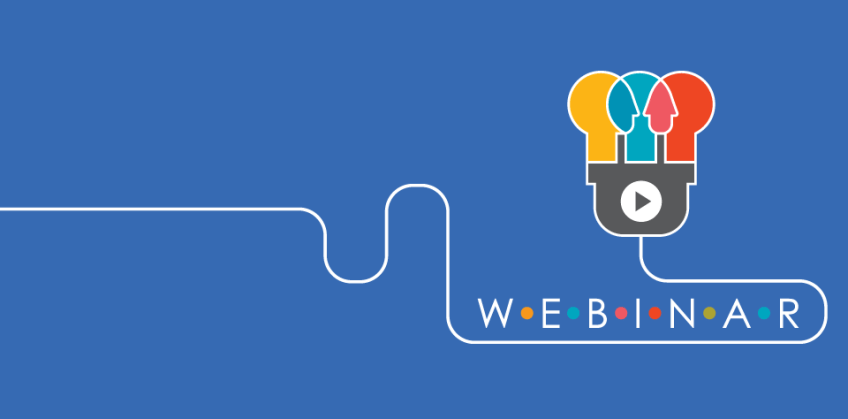
TYPES OF WEBINARS
Educational Webinar:
Often resembling a lecture, these webinars involve the presenter addressing the audience on a particular topic. It is usually an expert elaborating on a subject, generally followed by question and answer sessions.
A popular format of conducting webinars, this format allows the organizers freedom to structure the webinar the way they want. This format is best leveraged to elaborate upon subjects prospective students are curious to learn more about.
The University of Amsterdam recently conducted a webinar that focused on media studies. Hosted in peak recruitment season, this webinar focuses on talks by faculties and students from different majors. They cover details about media studies, benefits of the course and sign off by highlighting the perks of pursuing a course at the University of Amsterdam.
Check out their webinar here: University of Amsterdam – What are media studies?
Audience Driven:
These webinars are largely student focused, and the motive is largely to answer the audience’s queries. They are a great way to pre-empt your prospective student’s queries and ease their application process. In many cases, such webinars are a great way to launch a new course among an already established target market.
These webinars can be used in constructive repute building by showcasing the qualities incorporated by the institution. Be it the infrastructure, classroom environment, course overview or student testimonials, such webinars aim at invoking a sense of knowledge sharing.
Take a look at this webinar by Maquarie University, where their student advisor Andrew Jackson talks about primary requirements after enrolling in their university. He covers a multitude of topics like travel arrangements, accommodation and what to expect from Australia.
Panelist Discussion:
While not very common, these type of webinars are a great way to create an audience for your university online. These type of panel discussions are a great way to increase engagement, where the host can share different perspectives on a subject with the audience.
This type consists of a group of experts sharing their opinions on a particular topic, usually facilitated by a moderator. A major advantage of hosting a panelist discussion is that you can leverage the reputation of panelists while promoting your brand.
Look at this webinar conducted by TransformEd where they talk about the importance of social-emotional development of students. Transforming Education a Boston based Non-Profit Organization that partners with school systems focusing on whole-child development. These kind of webinars are a great way to earn the goodwill of your audience and also work brilliantly when dealing with complex topics.
Workshops:
Introducing the traditional idea of a workshop where people as a group work on a project, sharing ideas and techniques. Well, workshop webinars are similar in that way, just taking place online. Skype, Team Viewer and Mikogo support screen sharing and are great platforms to use.
Workshop webinars can be used to help prospective students identify the best way they could be writing their essays. It could even be aimed at helping international students interact with current international students at the university.
IMPORTANT FACTORS AFFECTING A WEBINAR
There are a number of factors that make a webinar special. It all boils down to identifying the best audience set and working out a topic that truly sets the webinar apart. Here’s a look at some of the ways that you could be improving the quality of your webinars:

Target Audience:
First things first, everything hinges upon the audience you intend on reaching. Topics that work among students would not be the same as that work for parents.
If you want to target parents, a good way to start would be to identify the most common questions being asked to your admissions department. Parents, more often than not, are more bottom line oriented than their children. If the webinar wants to reach out to them it might as well be answering questions like scholarships, employment opportunities and real-world experience opportunities. Students, on the other hand, are more interested in finding out about life on campus, opportunities for extra-curricular activities and may even be interested in a deep dive into the course outline.
Creating webinars without a clear understanding of your audience would more often than not lead to a wasted effort. Moreover, such webinars are a great way to highlight lesser known courses.
Topic of Interest:
Once you have identified the audience, it is time to identify a subject that your audience will appreciate. It is important to note that at a time like this being specific is key. Nothing turns off a viewer than a meandering subject and/or speaker.
Identify the most trending questions being asked by students. If you want to promote admissions make sure you are informing students about free application weeks you are running, give them more information on the documents they need to submit. It is important to identifying the topics of interest carefully in order to ensure the success of the webinar.
For instance, why choose a wide-ranging topic like – Popular courses in 2020, as opposed to a specific and well-targeted topic like –Journalism in 2020, where the hosts can hash out all the aspects regarding the subject, giving an in-depth briefing to the attendees.
The more specific you are with your audience and subject the more targeted your marketing strategy will be. To make sure that your marketing strategy is a success it is imperative that you have a specific audience set and a strong topic.
Speakers:
The speaker of the webinar holds the power to enthrall or completely bore the audience. It is crucial to have a speaker host the webinar who has the strength of personality and credibility to hold the audience’s attention.
It is always a good idea to include professors and guest faculties specializing in a particular field of study.
You could have a unique topic, great content but what good does it do if it’s not presented in a systematic and engaging manner? Strictly following the script is a no-no! Having a natural demeanor is what will help the audience connect on a deeper level thus increasing the engagement ratio.
Compatible Tools:
Choose a platform for the webinar that provides a smooth sign-in and sign-out experience for the users. If this process is embedded with too many technicalities, there is a high chance that your prospective attendee will opt out of joining the webinar.
Adobe Connect, WebEx, ClickMeeting, are some of the popular webinar services. It is important to understand that getting a student to sign up for the webinar is all about ensuring that it is easy for them. Make sure that the process of signing up and logging in are as intuitive as possible for the audience.
Date & Time:
It is important to identify a date and time that is most important for your target audience. According to to Livestorm, average time duration of a webinar conducted in the higher education industry is 40-60 minutes. If you feel like there is a lot of content to be stuffed in this time period, splitting the content in two different webinar sessions will not only hook your audience but also build credibility.
This image just gives a rough idea as to which days are popular for hosting a webinar, but does not necessarily mean that your audience will fit into that category. Google Analytics can come in handy here for you to check which day your website receives the most traffic and host your event accordingly.
Considering that universities have an international audience, conduct webinars at a time that is convenient for students across all time zones. Webinars are a great way to ensure you are reaching out to both parents and students, and if you are giving value, they are bound to engage with you.

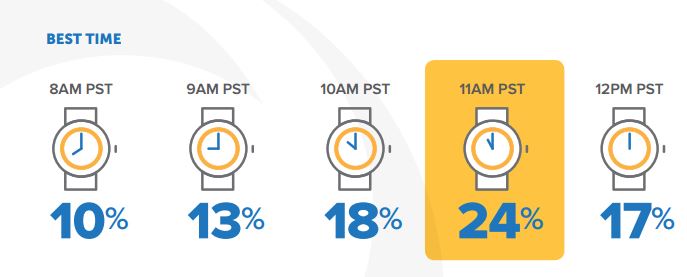
Additional Practices:
To increase the interactivity on your webinar you can add several small things like short video presentations, polls, group chats etc. These practices will increase the engagement of the overall webinar.
If you feel that the speaker will not be in a position to answer all the questions, you could also have another individual on chat. It is important to field as many questions as you can during the webinar. To make the video as interactive and value-oriented for the audience is what will ensure you get the best possible leads from the same.
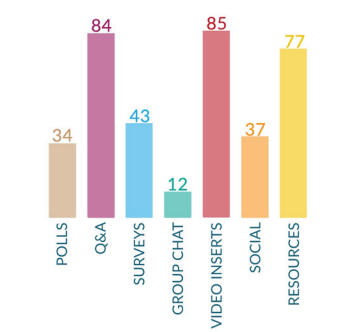
(Graph presenting the % of engagement features used in webinars – 2019)
BENEFITS OF HOSTING A WEBINAR
Webinars create a symbiotic relationship between the universities and the attendees, where both parties gain equally. A cost-effective solution for the education and marketing industry.

For Higher Education Marketers:
- Webinars are a great way to reach out to prospective students with information that they value, and thus generate
- It allows you to take charge of how your university/college/education institution is represented
- It creates a subtle marketing strategy where higher education marketers can lure prospective students/clients while promoting the brand name
- It is important to identify the best marketing channels for your webinar, this would largely depend upon the demographics of your audience
- Putting a face to the brand always helps prospective students and parents of these students invest more trust in the university
- Webinars can be recorded, which can be repurposed for blog posts or reference links to viewers who could not attend
- With the right marketing, webinars are a great lead generation tool and can give you high quality leads
- It is important that the registration and sign-up process for the webinar is simple and intuitive to attract maximum participation
For Students & Parents:
- Webinars are popular among students as they generate a pool of knowledge at their disposal
- Parents are also highly interested in face to face interaction as opposed to email conversations. This makes webinars a great way to share information with parents of prospective students
- These learning platforms are easily accessible and come with the luxury of recording the entire session thus eradicating the task of making instant notes.
- Webinars can help students get a better understanding of the courses and admission process of the universities they are hoping to study in
- They are a great way to help students and parents visit the college without really having to visit
WEBINAR MARKETING
Before starting a marketing campaign for your upcoming webinar, it is important to ensure that you have all the bases covered. Make sure you have kept these points in mind before embarking on a webinar campaign:
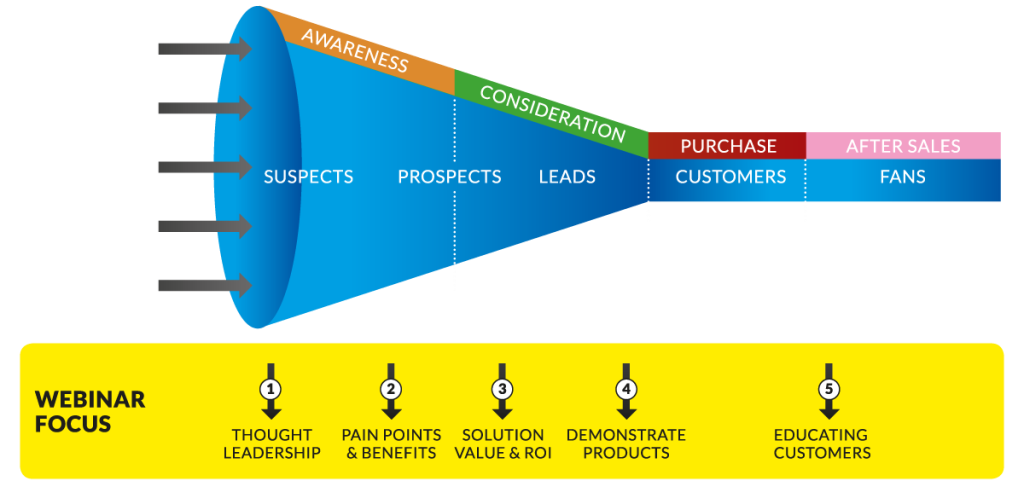
- According to a detailed report by DECK7, 2/3rds of webinar registrations happen 15-20 days before the set date of the event
- This promotional campaign should focus on receiving a good amount of registrations as not all the people who register turn out to be attendees. The desired number of registrations should be at least 3 times of your expected attendees
- Organic registrations are not as high as you might anticipate and paid promotion is necessary to get the right turnout
A solid webinar marketing campaign can be done in the following ways:
- Optimized landing page: This landing page should contain all the information about the upcoming webinar. Along with date and time of the webinar, mention the intent of the webinar and a brief bio of the host
- Emails: Emails are still considered as one of the best ways of reaching out to your target audience. Send out emails at least thrice before the actual event date, first at the time of registration, thanking them for their interest. A reminder email just a week before which is most likely to be saved in their calendars and lastly a day before with a link to the webinar log in page
- Social Media: Social media is what will ensure your event’s reach to the masses. Post detailed, attractive images on Instagram, Facebook and other handles. You can read more about how to leverage the power of social media here
- Exit-intent pop up: Customize your exit-intent pop up with the upcoming webinar details
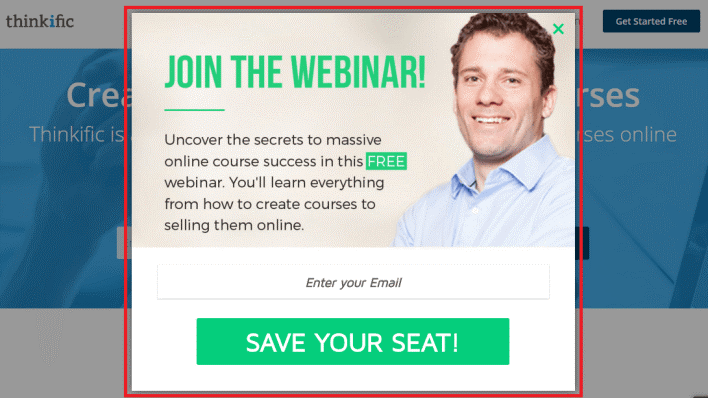
- Blogs: Share link to the registration form on your recent blogs, directing your loyal readers to yet another knowledge bank
- Google ads: Leverage the power Google to generate more traffic, read all about how Google can be used in promotions here
Webinar marketing has seen a massive upswing in the last year. With new technologies breaking through, it continues to rule the roost as one of the most effective long-term marketing techniques out there.
It is important to note that for higher education, leveraging webinars has become almost inescapable. For the year 2020, 42% of marketers are planning to include webinars, evidently this number is going to increase at a faster pace in the upcoming years.






No Comments